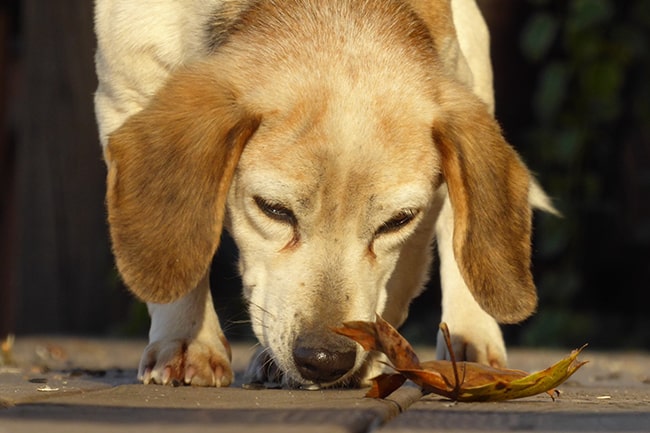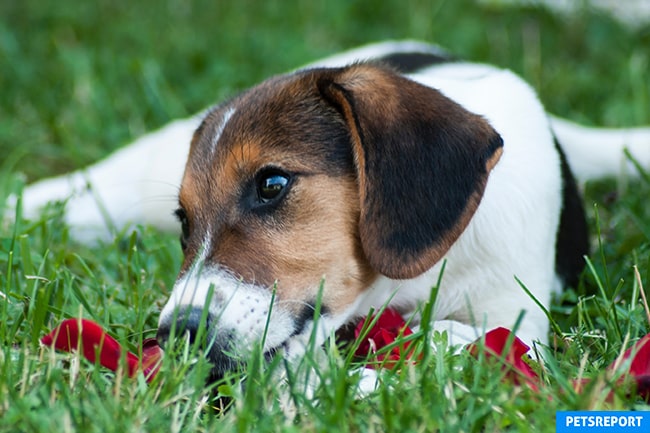If you have seen your dogs eating poop, your initial reaction may be to gross out of the scene. However, you must understand the cause of why your dog eats poop. Below we list some of the medical and behavioral reasons dogs eat poop:
Medical Reasons
1. Lack of enzyme
Enzymes are responsible for many digestive functions. It breaks down and helps in the absorption of food. Without enzymes, your poor little pup will go hungry. To counteract this, you need to make sure that your furry friends get all the nutrients they need.
2. Parasites
Another medical reason for your dog to eat poop is because of parasites that may be invading your poor pup’s body. The presence of such parasites may be due to the lack of deworming. If this happens, you have to make sure that your dog is dewormed properly.
3. Diabetes, thyroid, and other appetite-increasing-conditions
You may want to medically check your pup for diabetes and thyroid disease because these two could also be culprits as to why your dog eats poop. If your dog is medically taking steroids, these could be yet another reason.
4. Exocrine Pancreatic Insufficiency or EPI
This medical condition among dogs sounds very scary. This usually affects young pups but could also affect adult ones. EPI results in the lack of enzymes, which later results in your dog always wanting to eat their poop. Again, it may sound scary but is very manageable with the help of your trusted veterinarian.
5. Underfed
Well, one major reason why your dog eats its poop is that it may be underfed. You have to make sure that your pup is getting enough food.
Behavioral Reasons
1. “Clean up” mother instincts
If your dog has recently given birth to its pups, the mother dog would instinctively clean up her pups by licking, and yes, that includes eating her pups’ poop.
2. Puppies’ curious stage
Well, just like children, puppies are very, very curious about their surroundings. One of their ways of knowing their environment is smelling, licking, and also eating. Yes, that might include eating poop, too! This is a natural behavior among young pups. However, they grow out of this stage as they grow older.
3. The fear of being punished
You may have punished your dog once for pooping inside your house, and this may cause fear. This could lead to your dogs eating their poop because they are afraid that you may punish them for doing their business inside the house.
4. Stress
Stressed dogs, or any animal for that matter, often resort to eating things. And, yes again, that includes their poop!
5. Puppy mill
It is a painful and sad reality that puppy mills still exist nowadays. If your pup grew up in puppy mills, they develop the behavior of eating poop due to a lack of nutrients in such an environment.

How to stop this behavior
Now that you know the medical and behavioral reasons dogs eat poop, you must know how to stop this. Here are a few tricks you can try at home:
1. Keep things tidy at home
A simple and clean place to live is a happy place to live in. You simply have to regulate your dog’s walks, and they would lessen their pooping inside the house. If you live with a cat at home, make sure that you clean up their litter box regularly, too.
2. Keep your dog active
Play with your pup to keep them active during the day. This stimulates their body and mind. It is also ideal that you choose your dogs’ toys wisely to keep them entertained.
3. Healthy diet
Just like humans, dogs need a healthy diet. You can check with your veterinarian for a list of healthy food to feed to your dogs according to their breed and age.
4. Give supplements (if needed)
If your pup lacks some nutrients, check with your vet to know which one is highly advised for your dogs.
5. Smother them with love
If there is one thing that would make your dog healthy, it is your immense love for them.
There is always a reason and solution to why dogs eat poop
Dogs eating poops could be either medical or behavioral. Either way, there are always reasons why dogs behave in the ways they do. And there are also ways to stop and manage such unruly behavior, as long as you know how to.

